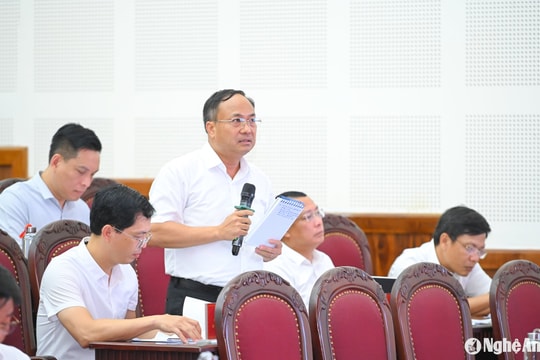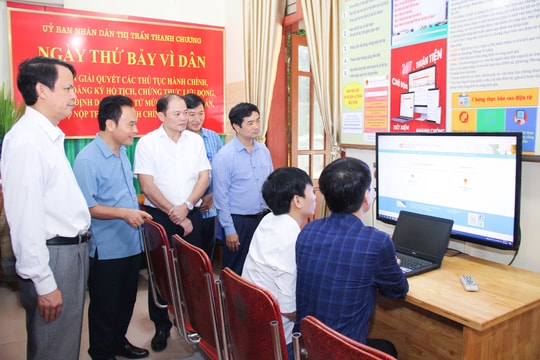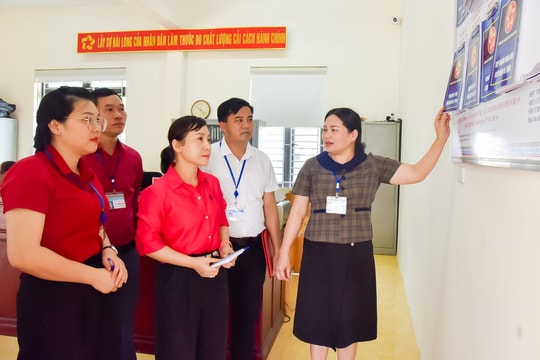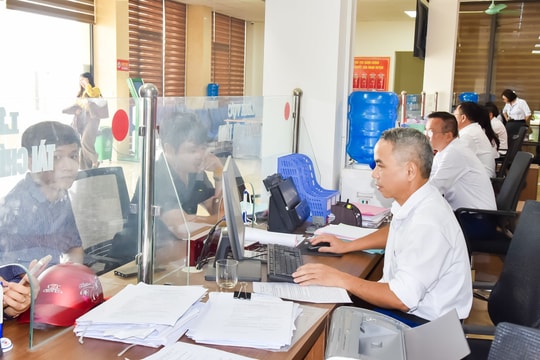The Prime Minister requested '5 pushes' in administrative reform
Prime Minister Pham Minh Chinh requested ministries, branches and localities to continue to urgently review and clearly identify bottlenecks and obstacles to administrative reform activities, propose specific solutions to remove them, and prioritize immediate resolution of hot and pressing issues among the people.
On the morning of July 15, Prime Minister Pham Minh Chinh, Head of the Government's Steering Committee for Administrative Reform, chaired the eighth meeting of the Steering Committee. The meeting was held in both in-person and online formats, connecting from the Government headquarters to 63 provinces and centrally-run cities.
At Nghe An province, comrade Le Hong Vinh - Member of the Provincial Party Standing Committee, Permanent Vice Chairman of the Provincial People's Committee. Attending were leaders of departments, branches, sectors and localities.
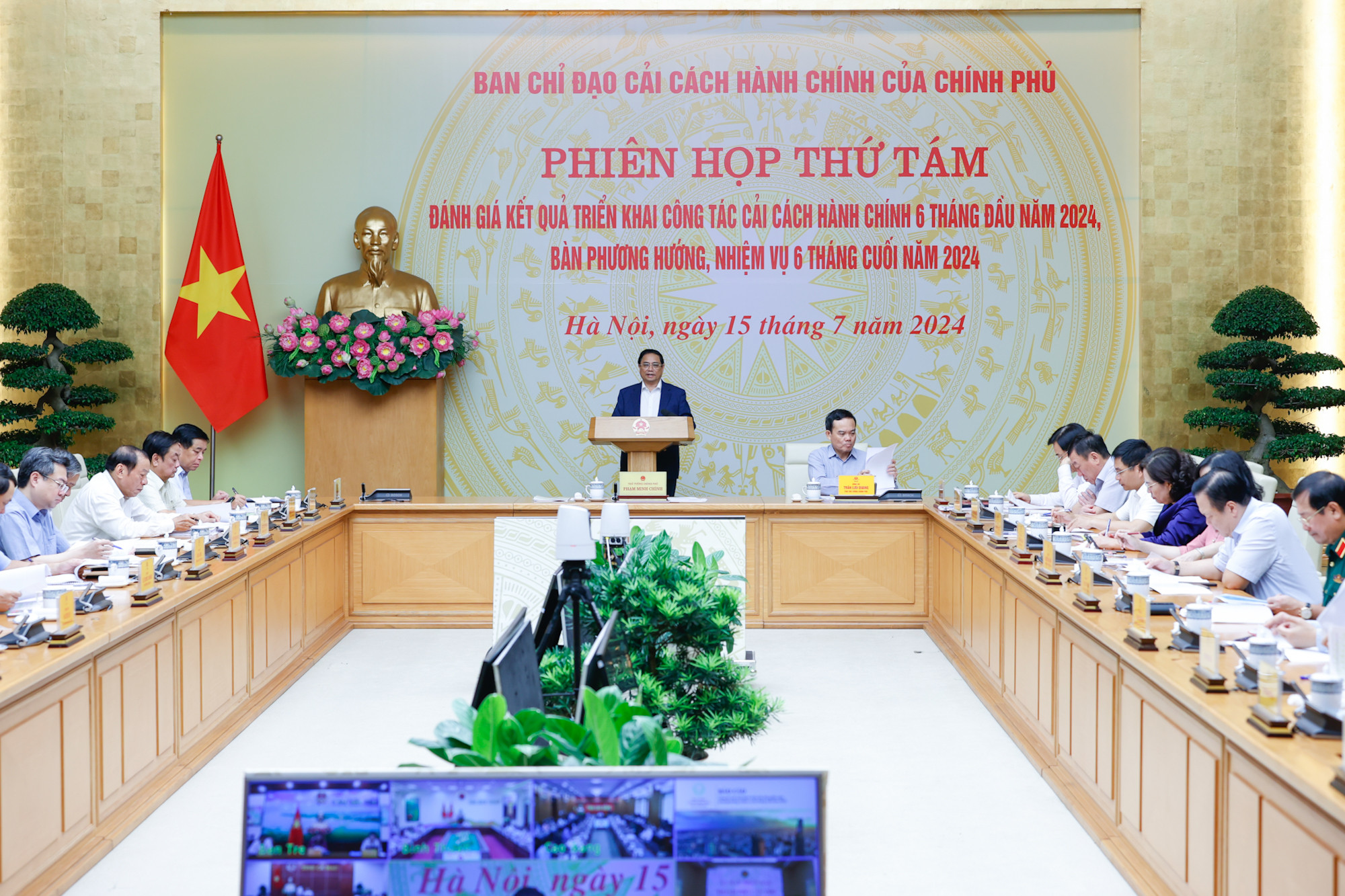
Many indexes improved, business environment increased
According to the report of the Government's Steering Committee for Administrative Reform, with the attention, close and drastic direction of the Government and the Prime Minister, along with the strong participation of ministries, branches, localities, people and businesses; the review and handling of difficulties and shortcomings in administrative reform have been actively implemented, contributing to promoting administrative reform and improving the investment and business environment.
Many of Vietnam's indexes have been upgraded, including the business environment ranking increasing by 12 places, ranking 106th in the world business freedom index, up 4 places compared to 2022; ranking 46th out of 132 countries and economies in the global innovation index, up 2 places compared to 2022.
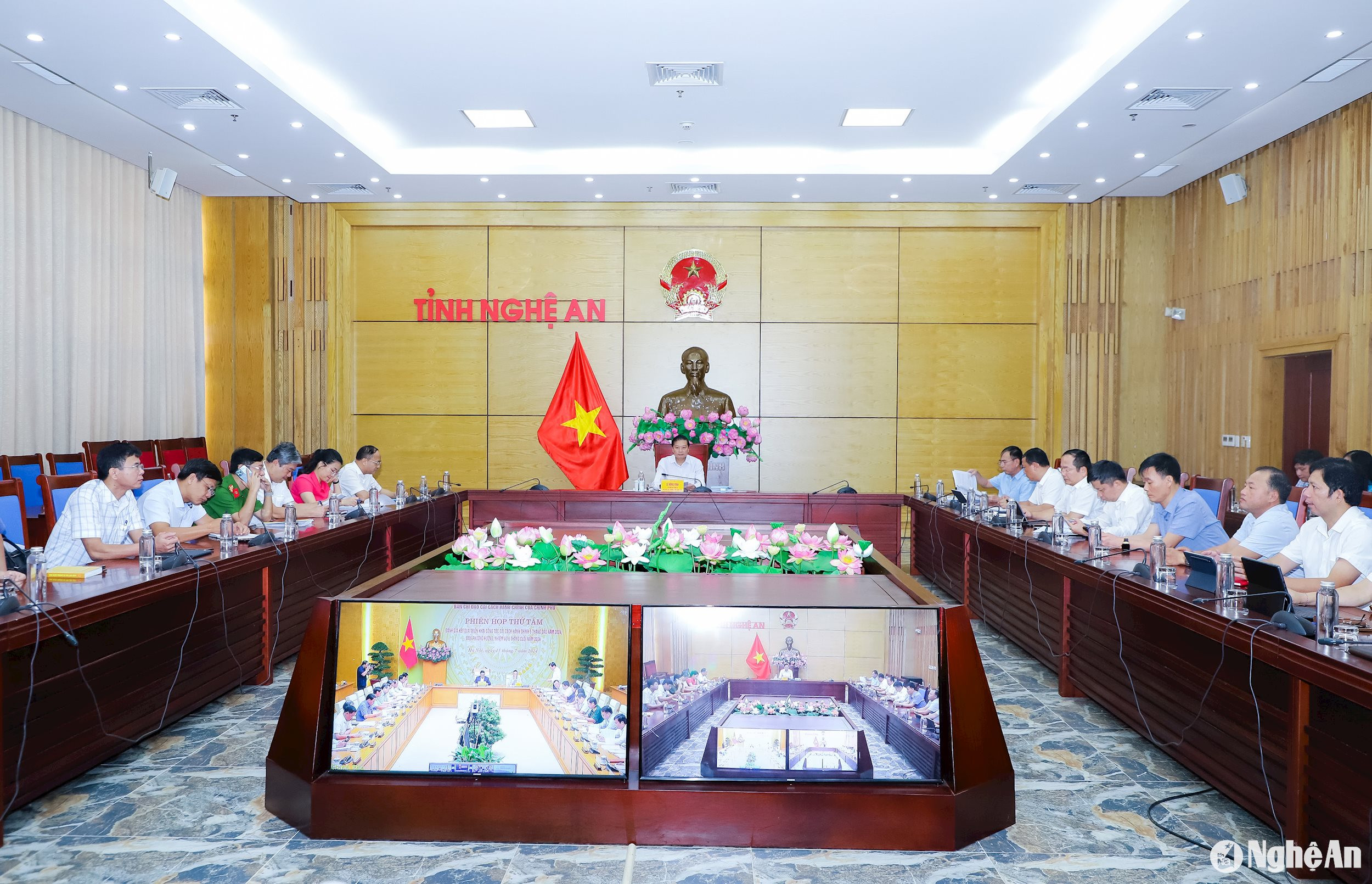
As of June 2024, central ministries and branches have completed 400/991 tasks, reaching 40.36% of the plan; People's Committees of provinces and cities have completed 1,327/3,009 tasks, reaching 44.10% of the plan.
Institutional reform and administrative procedure reform continue to receive attention. The Government and the Prime Minister have spent time listening to and meeting with the people and the business community to direct research and handle feedback and recommendations on mechanisms, policies and administrative procedures.
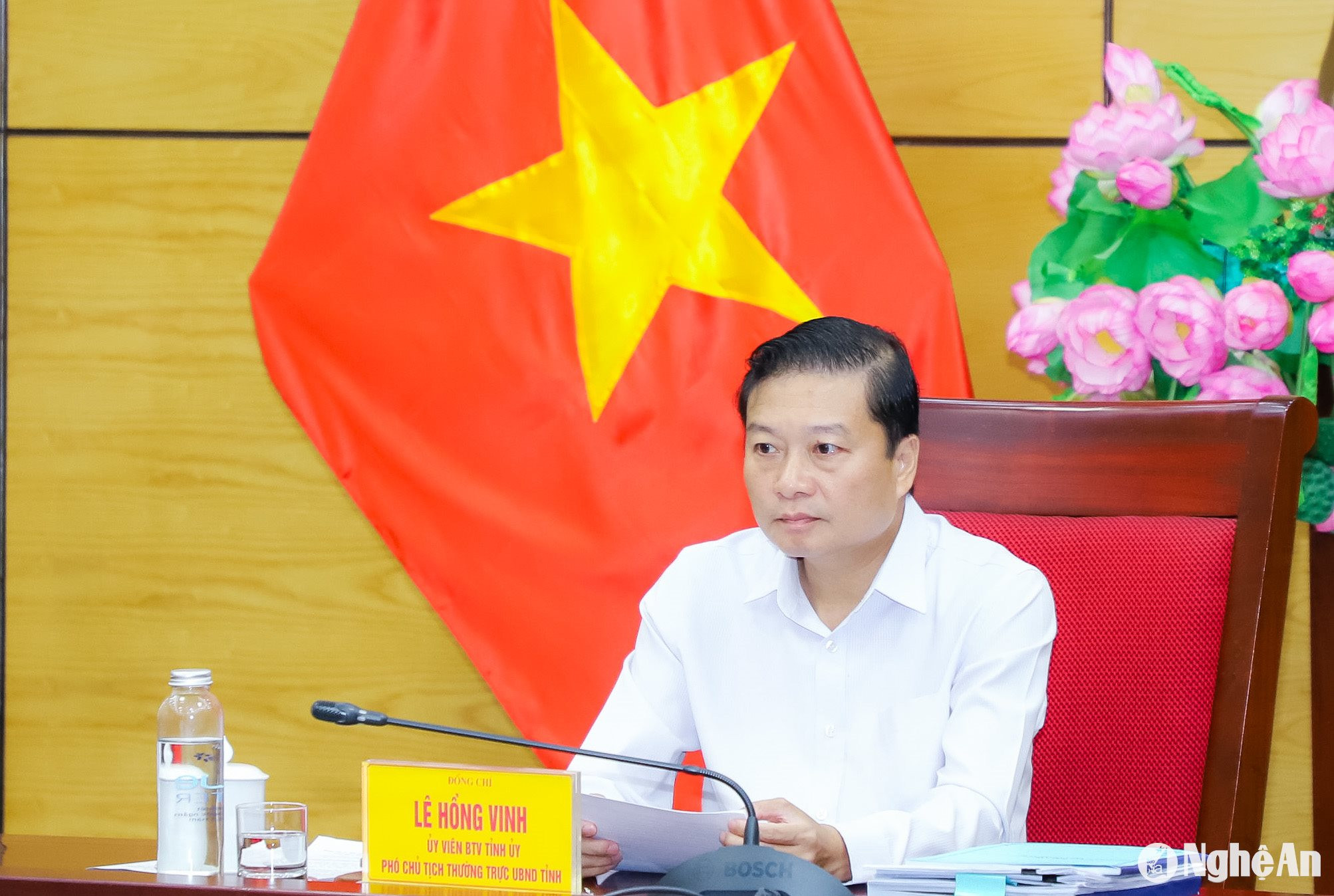
The arrangement and consolidation of the organizational apparatus and the completion of regulations on job positions in agencies and organizations in the political system, and the reform of salary policies continue to have clear changes, achieving positive results.
The Government and the Prime Minister continue to direct ministries, branches and localities to synchronously and drastically implement the construction and development of e-Government and digital Government, gradually achieving specific results...
Step up the removal of difficulties and obstacles in administrative reform
Concluding the meeting, Prime Minister Pham Minh Chinh assessed the outstanding results in the first 6 months of 2024 in all aspects of administrative reform.
The Prime Minister also pointed out the existing problems and limitations, such as the backlog of documents that has not been resolved; administrative procedure reform is still slow, and the simplification of administrative procedures is still not high.
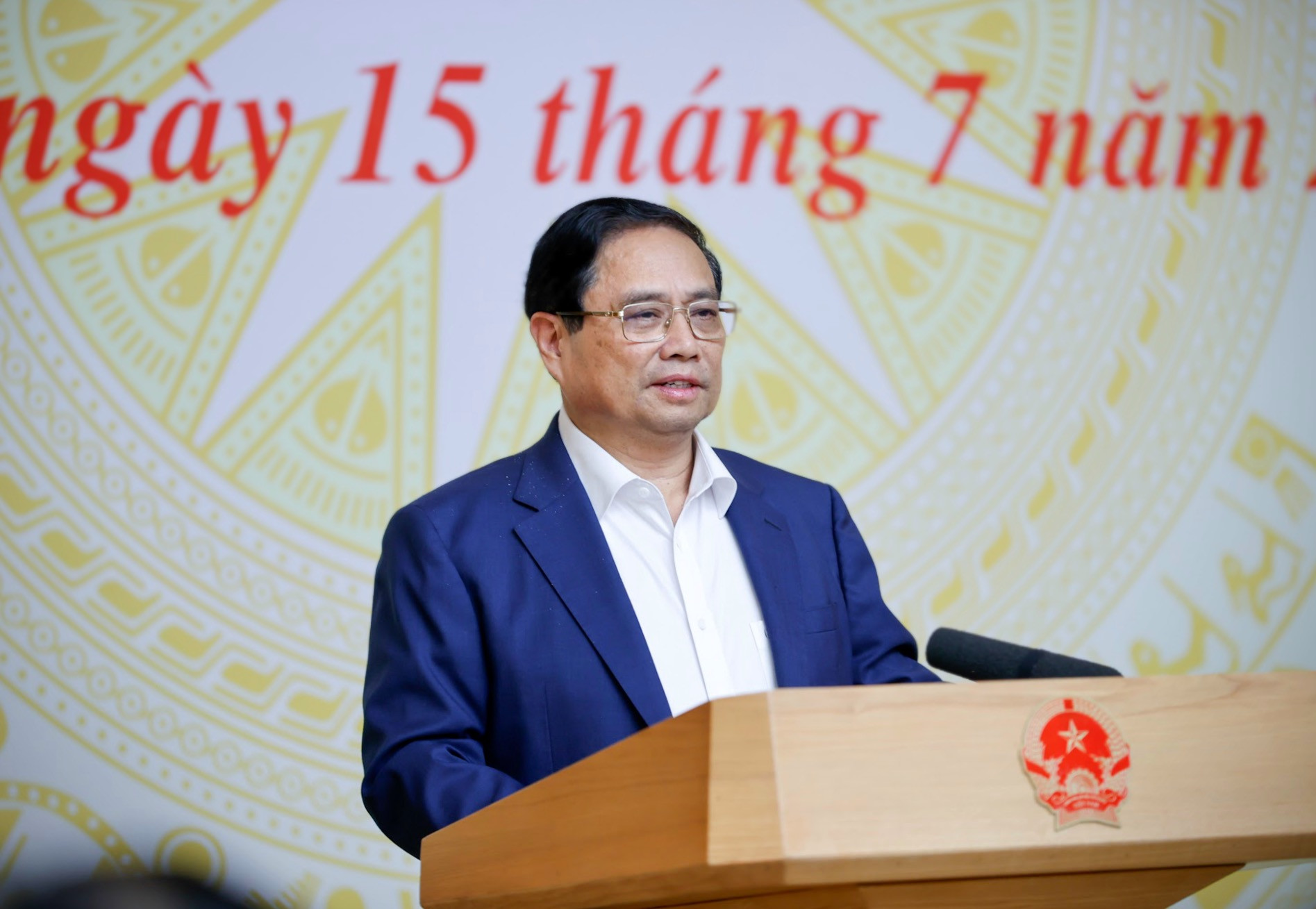
The organizational arrangement in many places is still inadequate; discipline and administrative order in some places are not strict; responsibility for performing public duties is not high, there are still signs of avoidance, shirking, and fear of responsibility...
Prime Minister Pham Minh Chinh emphasized the "5 steps" for the coming time. That is to step up the review and removal of legal obstacles and bottlenecks for production and business, contributing to mobilizing social resources, people's resources, and foreign resources for development.
Promote dialogue, sharing, and handling of difficulties and shortcomings for people and businesses, especially regarding administrative procedures. Promote public service administrative reform, strengthen administrative discipline and order, fight corruption, negativity, and waste in administrative reform implementation.
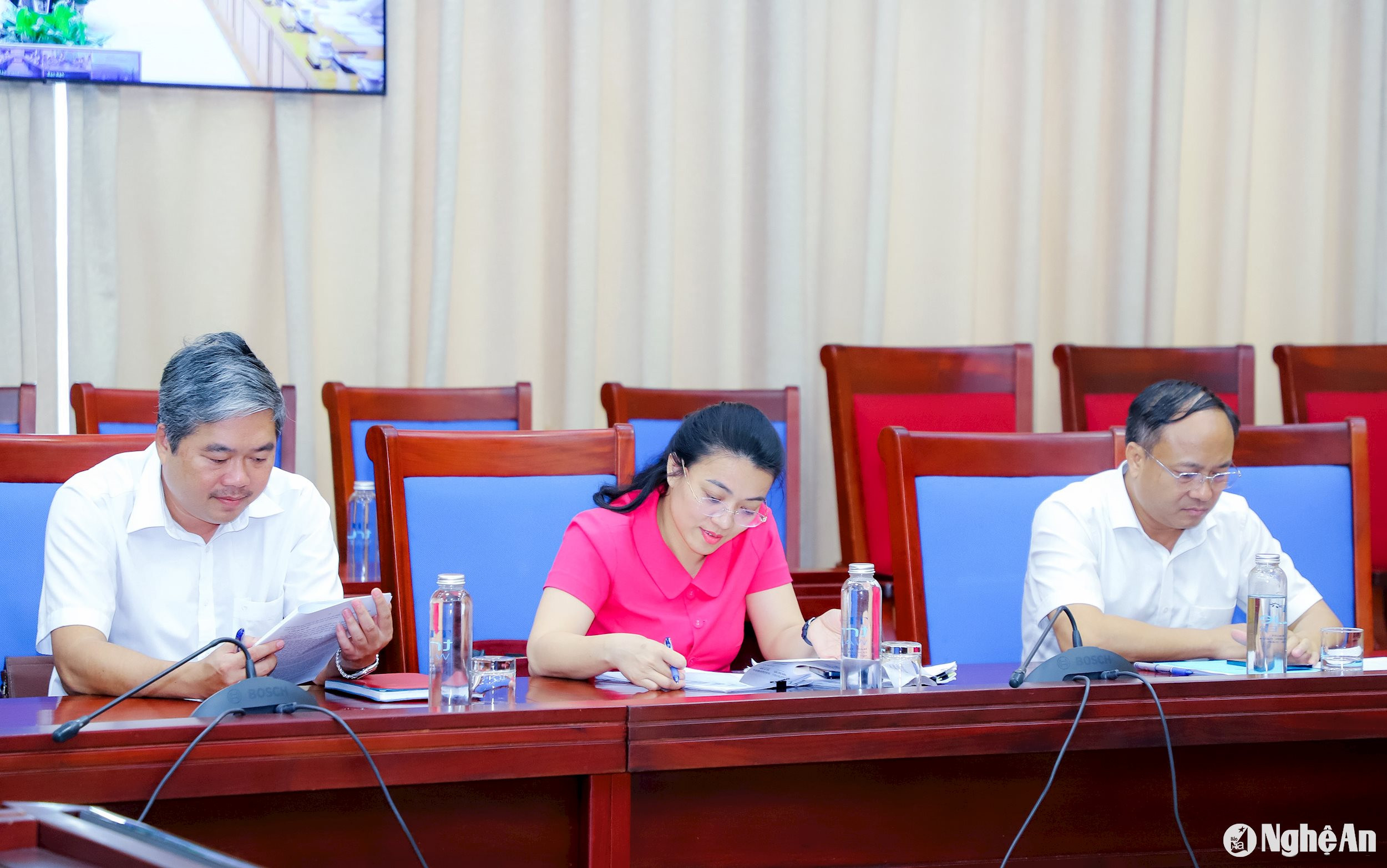
To promote the construction and development of e-Government and digital Government, we must focus on building and developing e-Government, digital Government, digital citizens, digital society, digitizing databases, and digitizing records to contribute to improving work efficiency.
Besides, promote cashless payments in all fields, levels, industries, and financial transactions.
Prime Minister Pham Minh Chinh also requested ministries, branches and localities to continue to urgently review and clearly identify bottlenecks and obstacles to administrative reform activities, propose specific solutions to remove them, and prioritize immediate resolution of hot and pressing issues among the people.
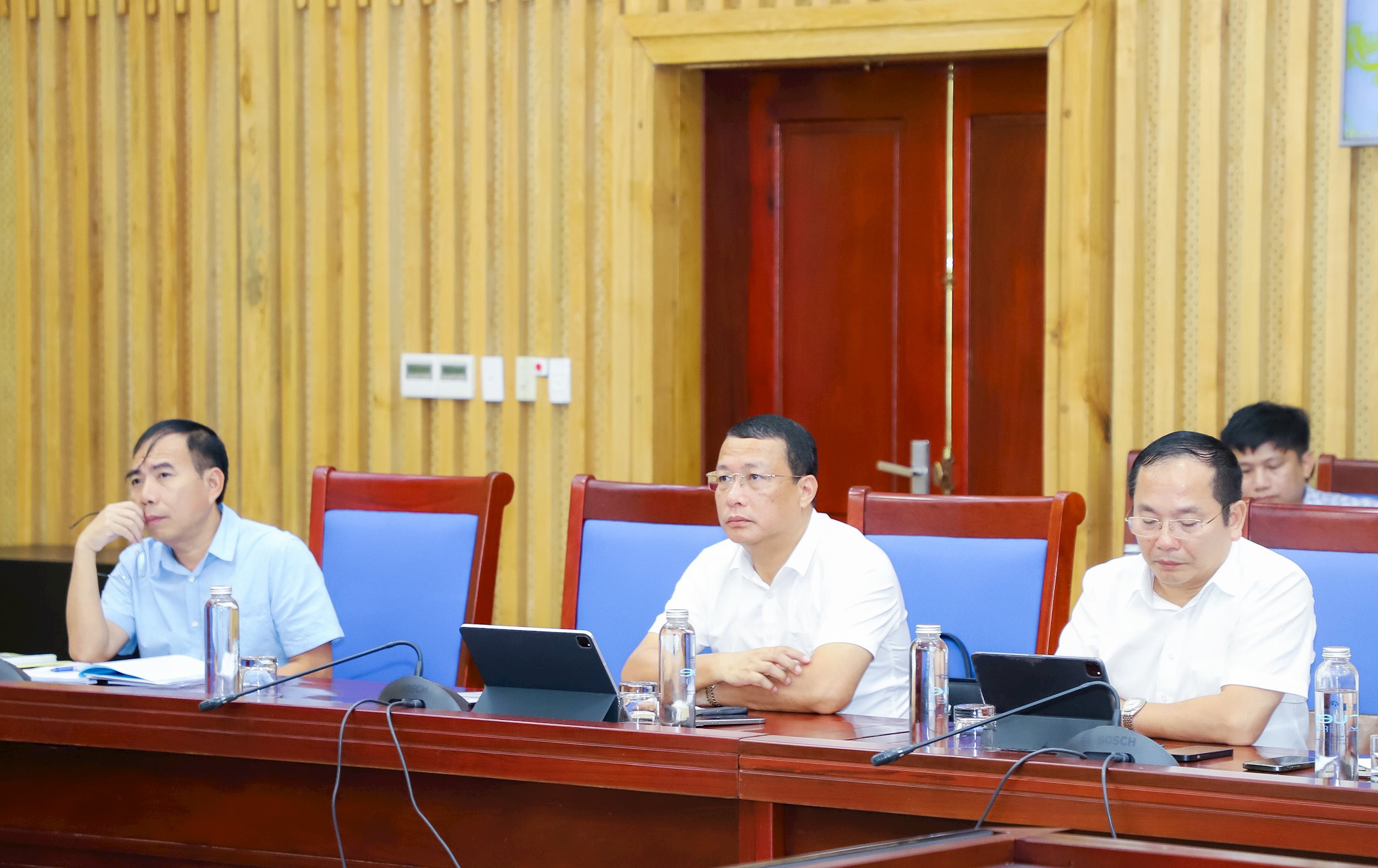
Implementing the directions of the Government, the Prime Minister, and the 2024 Administrative Reform Plan, clearly identify the focus and key points. In particular, ministries and branches must prioritize resources for the work of building and perfecting laws, improving the effectiveness and efficiency of law enforcement.
On the other hand, ministries, branches and localities must continue to strengthen decentralization and delegation of power in conjunction with appropriate resource allocation, and strengthen inspection, supervision and control of power. Focus on completing the allocation of public investment capital and strengthening disbursement, as this is the driving force for the country's growth.
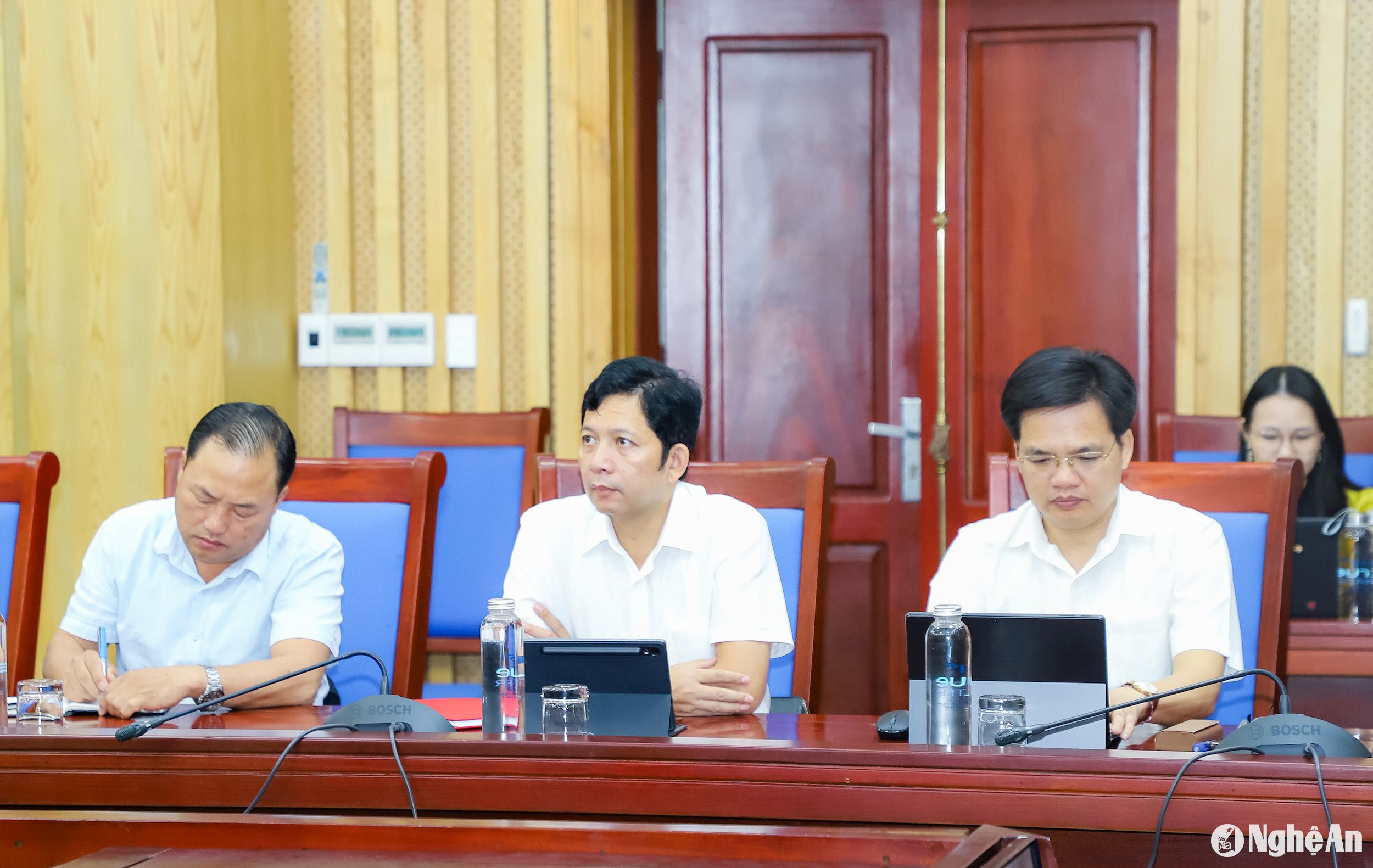
The Prime Minister requested to continue implementing solutions to improve discipline, administrative order, and the quality of public service performance. Focus on implementing the arrangement of administrative units at district and commune levels in the 2023-2025 period, striving to basically complete it by September 2024, ensuring basic stability of local organizations to hold Party Congresses at all levels in 2025.
In addition, there are mechanisms and policies to encourage, reward, prioritize promotion and appointment of civil servants with outstanding abilities, and propose many ideas and initiatives for administrative reform.

